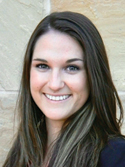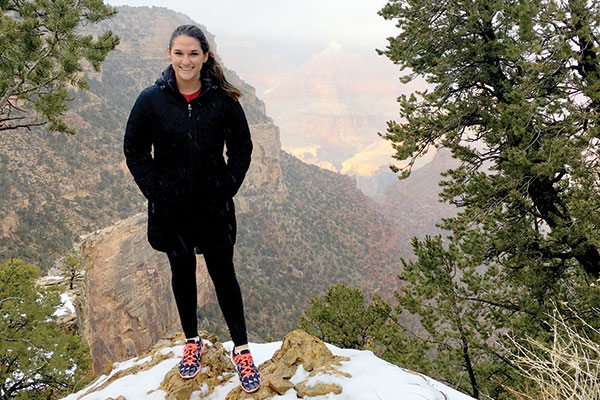Advice for My Teenage Self
7 Things I Would Tell the Girl Diagnosed with Cancer at Age Sixteen
by Julia Hernandez
You never expect to be told that you have cancer, but on February 14, 2010, Valentine’s Day, it happened to me. In a matter of days, I went from being a typical 16-year-old girl, worried about my upcoming driver’s license test, to a cancer survivor living in a hospital.
A few days after being admitted to the hospital for pain treatment, I was told I had acute myeloid leukemia, or AML, and was transferred to Miller Children’s Hospital in Long Beach, CA. The next day, I had surgery to insert a semi-permanent IV in my chest so I could begin chemotherapy. Over the next seven months, I was given multiple chemotherapy drugs and underwent numerous procedures to ensure the medication was getting the job done.
I lost weight, lost my social life, and lost my hair. I went from being an independent teenager to a kid who relied on my parents for everything. I was able to stay enrolled in school through independent study, but it was hard being out of touch with normal life. Every Valentine’s Day, I’m reminded of the scared teenager sitting in a hospital bed hearing those words for the first time: “Julia, you have leukemia.” I’ve come a long way since then.
My cancer diagnosis didn’t just give me a miles-long medical record and a scar on my chest – cancer has shaped me in ways far beyond the physical.
I beat cancer, graduated from high school, served as a St. Baldrick’s Foundation Ambassador, interned with a Major League Baseball team, graduated from college, and started graduate school. My cancer diagnosis didn’t just give me a miles-long medical record and a scar on my chest – cancer has shaped me in ways far beyond the physical. If I could go back and give advice to my 16-year-old self after just being diagnosed with cancer, I would say this:
1 Practice mindfulness.
Learn how to meditate, and incorporate it into your daily routine. Your body will be taking a beating, so take care of your mind.
2 Actually do your physical therapy.
It is tedious, and it’s no fun, but it will make your transition back to life after cancer much easier.
3 Don’t try to memorize the big words the doctors throw at you on the first day.
Your vocabulary will grow immensely throughout your treatment. Trying to learn everything on day one will not make anything easier or less stressful.
4 Whatever you do, do not look at Wikipedia to learn about your diagnosis.
Objective opinions can be useful, but the internet is a scary place, and going down the rabbit hole will not do you any favors.
5 Depression is not something to be ashamed of.
Mental illnesses are like any other illnesses. They can be treated. Don’t ignore it; you have so many people ready to help you and support you. And don’t be ashamed. Just get help.
6 Build normalcy into your life at every opportunity.
I never wore hospital gowns, except when I went to surgery. Transform your room into your space; bring movies, books, and posters. Create a sense of comfort in an uncomfortable place. Even if you’re only in the hospital overnight, bring your own blanket and your headphones and playlist.
7 Last, but most important, never stop fighting – not just against cancer, but for yourself and what you believe in.
Cancer will beat you down, but it will also bring out the best parts of you, parts you didn’t even know existed until now. You are stronger than you think. You will learn to fight in ways you didn’t know were possible. And you will use that determination down the road to discover your passions and figure out what you’re willing to fight for.

Julia Hernandez (pictured left and above) was diagnosed with cancer in 2010. She served as a 2011 St. Baldrick’s Foundation Ambassador, representing the more than 300,000 kids diagnosed with cancer each year. Today, she is cancer-free and recently started an MBA program at San Diego State University in San Diego, CA.
The St. Baldrick’s Foundation is a volunteer-powered charity dedicated to raising money for lifesaving childhood cancer research. Learn more at StBaldricks.org.
This article was published in Coping® with Cancer magazine, May/June 2017.


